The road to revolution: desperate doctors demand reform
It started as a staff uprising, led by an unassuming intensive-care physician, that grew into a statewide probe and fears of a toxic culture gripping a health system.
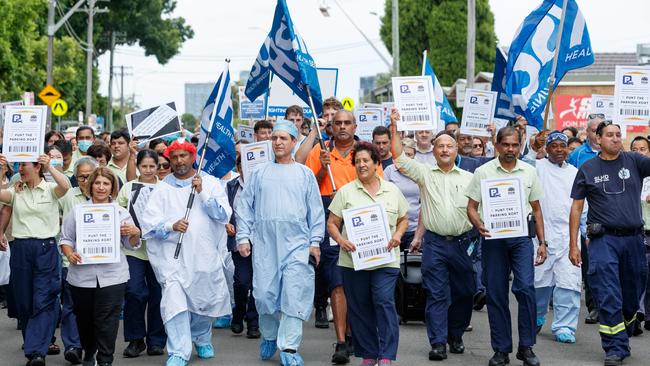
Revolutions begin like a whisper, Tracy Chapman once sang. At Concord hospital in Sydney’s inner west, a healthcare revolution built slowly over years. But when the tipping point came, the demands for change were loud and they were unequivocal.
A staff uprising led by an unassuming intensive-care physician, Winston Cheung, serves as a sentinel example of the schisms at the heart of public hospitals nationwide: mass dysfunction and widespread disrespect for clinical priorities that is blighting clinicians’ careers and posing threats to frontline patient care.
The toxic nexus between the roles of doctors, nurses and their medical administrator overlords was explored in detail in the NSW Special Commission of Inquiry into Healthcare Funding, which is expected to hand down its final report on Thursday ahead of its public release, pending governmnt approval.
The basic facts are already on the public record: the Concord Repatriation General Hospital passed a vote of no confidence in 2023 in its chief executive at the time, Teresa Anderson. The shock events were splashed across Sydney’s newspapers, which detailed huge backlogs of as many as 50,000 unreported radiology scans.
That situation is now remediated, but the fight by the Medical Staff Council, which Dr Cheung chairs, is not over. Last year, as the commission unpacked NSW’s complex health systems, Dr Cheung took to the witness box – as did some of NSW’s most senior medical administrators.
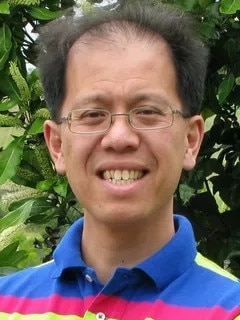
In submissions and staff council minutes that became public exhibits, the tragedy of Concord was laid bare. At its heart, it was a tale of NSW Health’s bureaucratic machine destroying the lives of the clinicians who worked within its cogs.
The summary of issues laid before the special commission at Concord is reflected in public hospitals around the country. Departments at Concord were in “significant distress” with a poor staff culture, marked by bullying and reprisals. Services had been scaled back.
The waiting list in the neurosurgery department, which had only three neurosurgeons and had been one surgeon short for seven years, had stretched to 177 patients. Operating sessions were frequently cancelled. On three occasions, machines at the end of their usable lives had malfunctioned during brain surgery or wouldn’t turn on. Incident reports were lodged but allegedly ignored.
“Patient care placed at risk with a machine that was at the end of life and due to fail,” say summary notes in a submission from Raoul Pope, staff specialist neurosurgeon, laying out the experience of the department in which he worked. “Inaction of utilising end-of-life equipment not under warranty or service agreement. Risk mitigation failure, patient safety compromised and medico-legal exposure.” Despite the risks, clinicians allegedly were dismissed and subject to intimidation with no due process.
The Concord case study was not the central business of the special inquiry. But it was impossible to ignore. Funding matters are intricately tied to the culture of decay occurring in public hospitals, where administrators’ iron-clad control over purse strings is at the root of managers’ tendency to ignore clinical failures and crush whistleblowers.
One of those destroyed by the system – and now understood to intend never to return to medicine – was respected emergency physician Belinda Hokin, whose submission was before the inquiry. She was not called as a witness and so her allegations are untested.
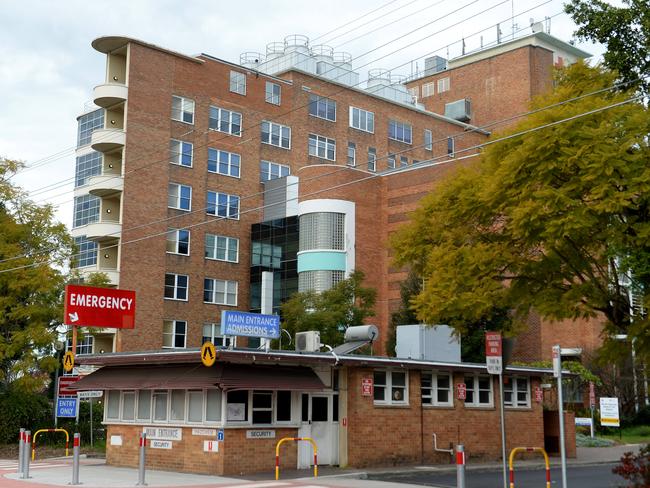
After surviving an initial protracted skirmish with management and returning to work, Dr Hokin alleges in her submission to the inquiry that she was again placed in the deep freeze after raising an issue of governance and lodging a formal complaint.
“Bullying and intimidation is widespread throughout Concord hospital, and there are many individuals that have significant psychological injury,” Dr Hokin’s submission says, detailing high rates of staff turnover and sick leave. She labelled Concord’s emergency department as a “toxic and unsafe environment” that led her to the point of breakdown. Dr Hokin said seven other emergency doctors had been subject to bullying or harassment with various degrees of injury.
“The personal and professional consequences are enormous … there are still times that the thought of returning to work brings me to tears,” Dr Hokin says in her submission. “We are dealing with institutional bullying. There are both bullies and enablers; many are both. Many of us can name more than one, but they are untouchable and unaccountable.”
Dr Hokin has now resigned from Concord hospital and says she will never work in medicine again.
Counsel assisting the commissioner, Edward Muston SC, in his outline of submissions made close to the end of the inquiry hearings, devoted a special section to what he described in a lawyer’s anodyne language as issues of “consultation between management and the clinical workforce”.
These closing submissions, which will form the basis of recommendations by Commissioner Richard Beasley SC in the final report being handed to the NSW Governor on Thursday, detailed conflicts over the scope of the role of medical staff councils in NSW hospitals. He noted it was “plainly unsatisfactory” that it took a vote of no confidence in Dr Anderson for the NSW Health Ministry to become aware of the level of disquiet among a segment of the workforce at Concord hospital. Mr Muston took aim at administrators who believed Dr Cheung and the staff council were attempting to “usurp” the functions of the Sydney Local Health District board or executive.
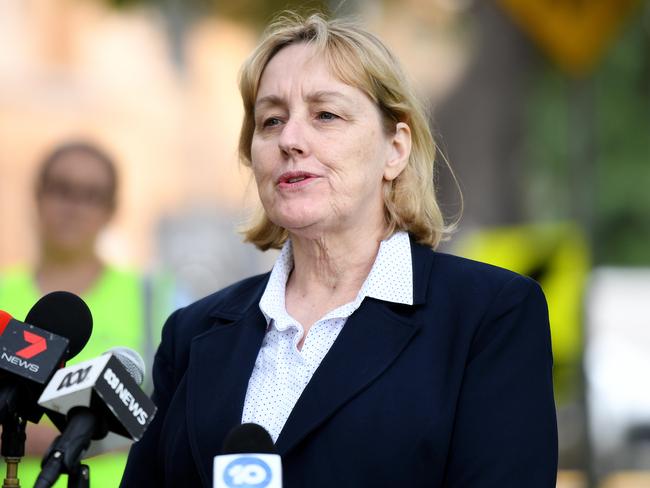
Mr Muston, like Mr Beasley in hearings beforehand, clearly found it absurd that Dr Cheung had been hit with the threat of a code of conduct violation for doing little more than having a loud, heated exchange with a member of the Concord executive during debate preceding the notorious vote of no confidence.
Dr Anderson in hearings said she did not draft the original version of a letter that outlined the proper role of medical staff councils, and raised the code of conduct issue.
If the code of conduct violation had been actioned, Dr Cheung would have found himself, like many doctors around the country before him, trapped in a tortuous complaints process with the possibility of being placed on a public hospital blacklist, the effect of which is that doctors can never work in a state public hospital again.
“It was, to put it neutrally, an unfortunate and entirely unnecessary escalation point,” Mr Muston said of the events. “It should have been obvious that this action would likely have been viewed by Associate Professor Cheung as suggesting that disciplinary procedures would be weaponised against him if he continued to raise the concerns he and his fellow clinicians held regarding the executive and his approach to engagement with the clinical workforce at Concord. This perception would only have been reinforced by the disciplinary action which was subsequently initiated against him for what – at worst – was a robust expression of concerns, with reasonable justification, he felt had been ignored by the executive.”
When contacted for comment on Wednesday, a spokesperson for Sydney Local Health District said it was committed to providing a safe and respectful environment for all staff.
“We strive to encourage a culture where all staff feel safe to speak up regarding any concerns they have that may impact patient care,” they said.
Dr Anderson has moved from her role as SLHD chief executive since the vote at Concord.
Mr Muston submitted that NSW Health’s complaints and grievance processes “would benefit from simplification”. The commission was constrained by its terms of reference from going further, such as recommending an independent body to oversee governance in NSW hospitals.
Mr Muston also commented on the “high levels of fatigue, stress and burnout” across the medical profession. This is the issue that threatens in future to cripple Australia’s public hospitals.
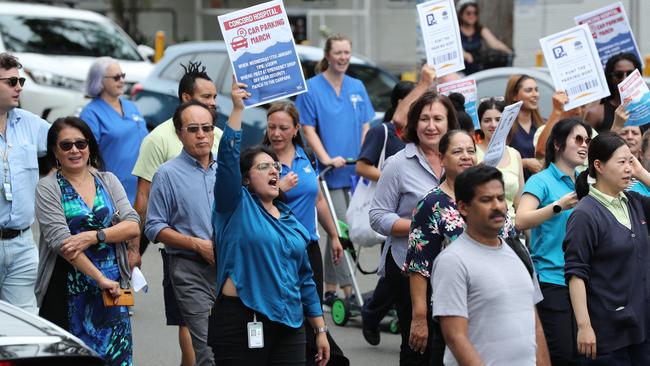
For Dr Cheung, who faced an unsuccessful vote of no confidence in his own leadership during the Concord stoush, the fight appears to have been worth it in many senses, and it goes on.
In a spirited address to the Medical Staff Council that was included as a submission in the special inquiry, Dr Cheung encapsulated the issues that corroded the good faith of so many doctors around the country.
He described the hospital he loved as a workplace war zone.
“We were a divided community … smashed by Covid and worn down by years of unjust and incompetent management practices … practices that pitch departments and colleagues against each other in a fight for scraps of limited resources,” Dr Cheung said amid the 2023 maelstrom. “I knew that this could be fixed. All we needed to do was unite.
“Many of us were adamant that there needed to be change. We were united in agreement that there was a serious problem with intimidation, bullying and harassment.
“We were united in agreement that we had colleagues that had been terribly mistreated. We were united in agreement that justice had to occur. We were united in agreement that the performance of the chief executive and management at Concord has been extremely poor.
“It was a clear message that if you speak up, or if we do not like what you have to say, we will use process against you just like they have used process against many of you previously.”
“There’s a simple but fundamental flaw in the way important decisions are made at this hospital at all levels. That fundamental flaw is the failure to listen.
“Let me make this very clear, this vote against me was not a vote of no confidence; it was an act to censure and silence a person who revealed the disgraceful management practices at this hospital, under the watch of the chief executive. It was an act to silence. It was an act to intimidate. It was a clear message that if you speak up, or if we do not like what you have to say, we will use process against you just like they have used process against many of you previously.
“This behaviour has to stop, and it must stop and it’s going to stop on my watch. There will be no more intimidation. There’ll be no more bullying, and there’ll be no more harassment of our staff. Today I see a new beginning.”
The Concord issues are now before the terribly under-resourced office of the NSW Ombudsman, the only body in the state, apart from the NSW Independent Commission Against Corruption, that can bring independence to bear to examine issues of healthcare workforce maladministration. It’s the same in all states.
Dr Cheung and his colleagues may have forced transparency, but new beginnings are just that. The road is long. How many doctors will be lost to public hospitals around the country as the Concord microcosm plays out behind ward doors is anyone’s guess.



To join the conversation, please log in. Don't have an account? Register
Join the conversation, you are commenting as Logout